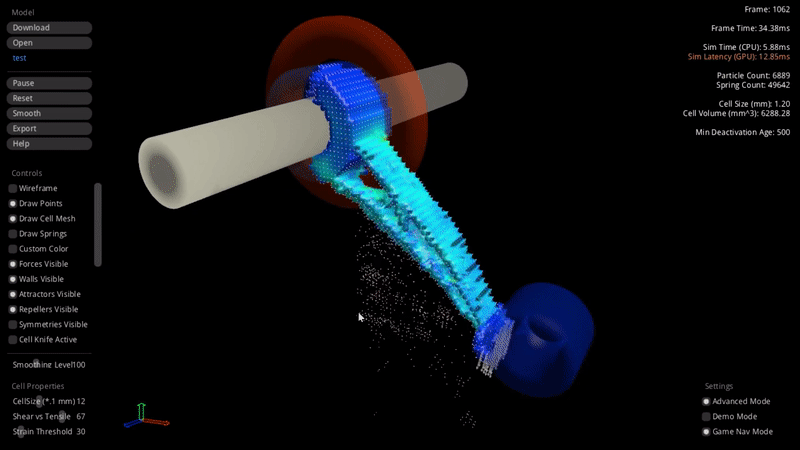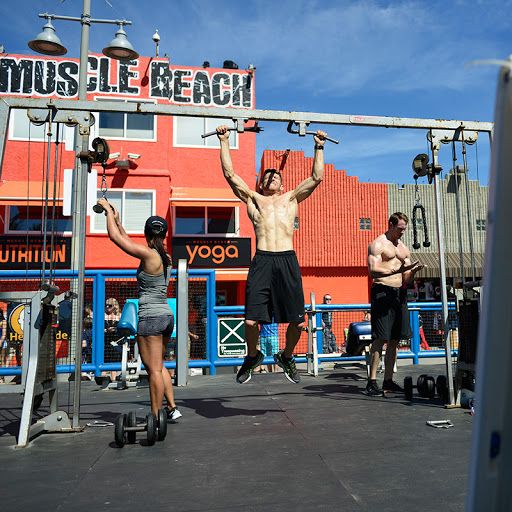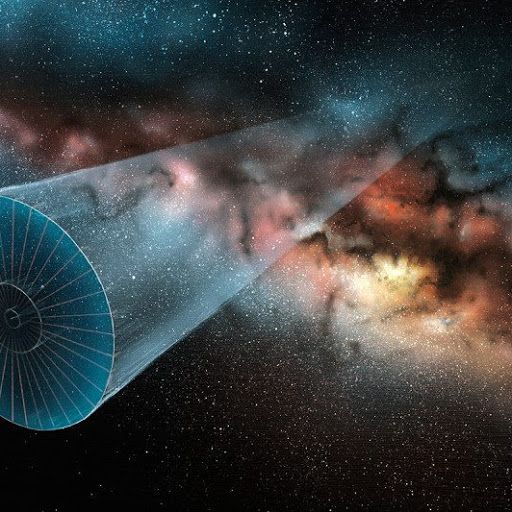Page 9990
Feb 12, 2018
The high-tech cities of the future
Posted by Shailesh Prasad in categories: climatology, habitats, sustainability
New cities are currently being planned to ease the strain on existing ones. In an ideal world, they should provide work and housing, and be sustainable and climate-neutral at the same time. Is this a realistic objective?
Feb 12, 2018
This AI software dreams up new designs for 3D-printed parts before your eyes
Posted by Shailesh Prasad in categories: 3D printing, biological, robotics/AI
Desktop Metal’s new software lets regular people design objects optimized for 3D printing, no experience required.
The news: Desktop Metal’s new LiveParts is a piece of software that automatically generates designs of objects ready for 3D printing. Users just tell it the structural constraints of the object they’re building, and it uses biology-inspired AI models to quickly generate a design suited to additive manufacturing.
Better components: The software ensures that parts take advantage of 3D printing’s capabilities. “This would enable weight reductions between 25 and 60 percent of many kinds of general-purpose parts,” says Desktop Metal CEO Ric Fulop, “while spreading loads more evenly and improving fatigue resistance.”
Continue reading “This AI software dreams up new designs for 3D-printed parts before your eyes” »
Feb 12, 2018
Farms Of The Future Will Use No Soil And 95% Less Water
Posted by Magnus Frolov in categories: food, sustainability

A zero-soil vertical farm is growing fresh greens stacked over 30 feet high.
Make sure to follow Focal Point for more stories like this!
Feb 12, 2018
Russian expert proposes nationwide voluntary ‘space fund’ for moon exploration
Posted by Magnus Frolov in category: space travel
A former senior executive of Russia’s United Rocket and Space Corporation has proposed to introduce a voluntary payment that would allow a fully independent national moon program as well as a new orbital research station.
The author of the proposal, Valentin Uvarov, is now an independent expert in the sphere of space research, but in 2014–2016 was head of the Directorate of Manned Space Complexes at the United Rocket and Space Corporation. In 2016–2017, Uvarov headed the Department of Commercial Projects in Manned Space Research at the same corporation.
In his open letter, published by the Izvestia daily, Uvarov wrote that according to his calculations the implementation of both the moon program and the new orbiting research station would cost the Russian budget about $38 billion or 2.13 trillion rubles. He then proposes to split to overall sum into 100 million parts (a very rough estimation of economically active people in the Russian Federation) and then introduce a schedule of equal monthly payments over the 15-year period. The result is a relatively modest 120 rubles per person per month or about $2.15.
Continue reading “Russian expert proposes nationwide voluntary ‘space fund’ for moon exploration” »
February 21st Dr. Oliver Medvedik is hosting a special AI vs Aging Livestream here on our Facebook page. Anastasia Georgievskaya, Alex Zhavoronkov, and guests will be taking part in this special panel focusing on AI in aging research.
Ask your questions about AI in research on the thread here and we will try to include them in the show.
Feb 12, 2018
Humans Could Soon Become Immortal, But The Cost May Be Horrifying. Would You Do It?
Posted by Derick Lee in categories: life extension, neuroscience, transhumanism

So will we ever be able to do this or is this just a pipe dream? Plenty has been written about the future and what we may be able to do one day, but not much attention gets paid to the hurdles we have yet to overcome. Forget all the techno-babble, philosophy, and transhumanism – how close is this brave new world to our present time?
“Any way you look at it, all the information that a person accumulates in a lifetime is just a drop in a bucket.”
Feb 11, 2018
Feather-light artificial muscles lift 1000 times own weight
Posted by Genevieve Klien in categories: cyborgs, robotics/AI
Feb 11, 2018
Should we seed life through the cosmos using laser-driven ships?
Posted by Genevieve Klien in categories: innovation, space
Light sails can later use space-dust braking Richard Bizley/Science Photo Library By James Romero Our galaxy may contain billions of habitable worlds that don’t host any life. Should we attempt to change that? Breakthrough Starshot is a project with ambitious aims to use such systems to send tiny, lightweight probes to Alpha Centauri. The goal is to take pictures of our nearest star, but these systems could also deliver much larger payloads into orbit around nearby stars, says Gros. Potential targets include the planetary system around TRAPPIST-1, a red dwarf star just 40 light years away…
Feb 11, 2018
Charge your phone using ambient light and printed solar cells
Posted by Genevieve Klien in categories: mobile phones, solar power, sustainability
Printed plastic solar cells should be able to harvest enough energy from indoor light to power your phone within the next few months.
















